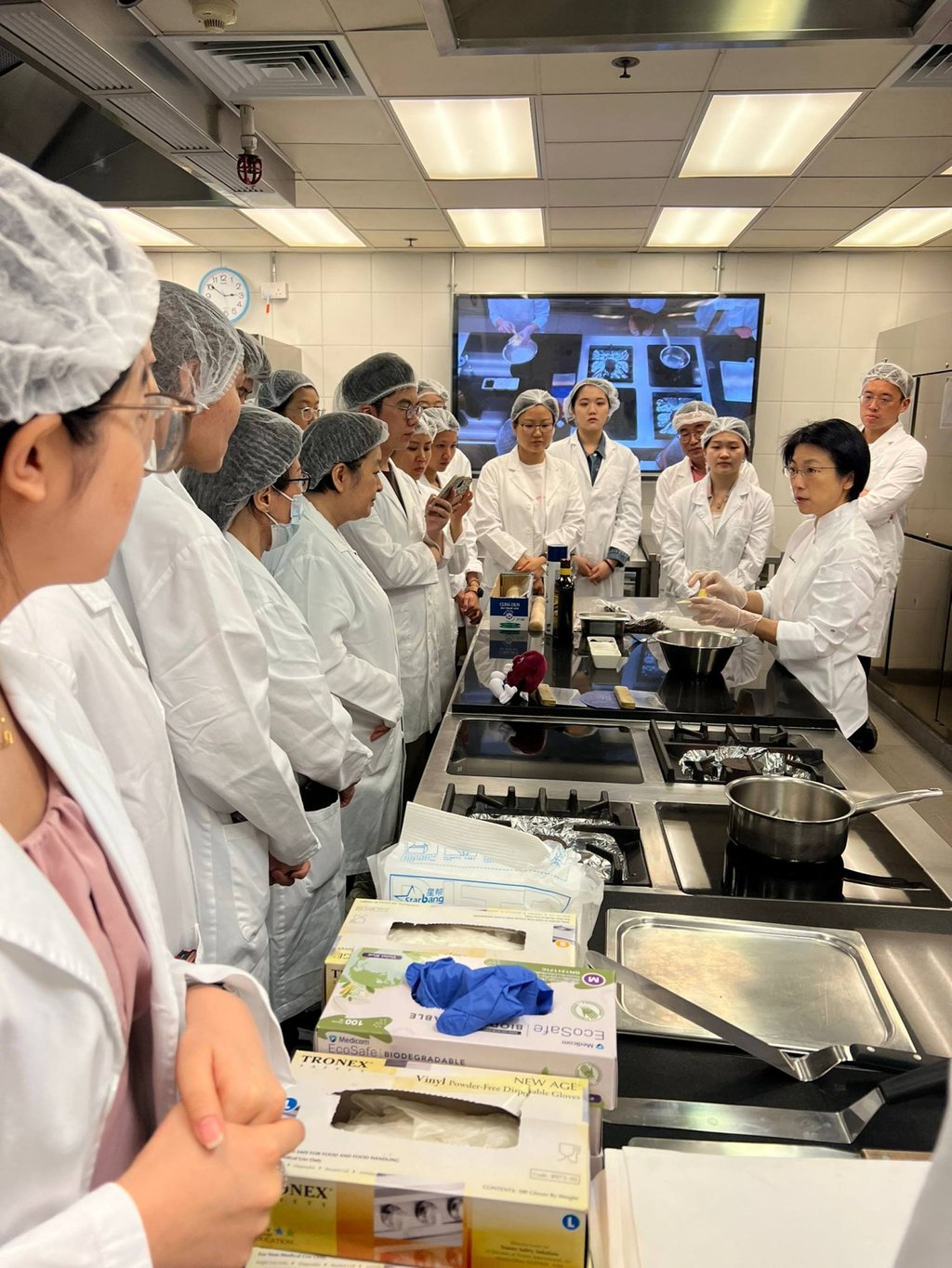Serving is only a task and a part of connecting with people
“We assume they do not have much knowledge about cooking, so we start from scratch. Nowadays, some youngsters cannot even tell apart vegetables, like choi sum from gai lan, or parsley from cilantro [also known as coriander].”
She adds: “What I want is for them to at least develop an appreciation of food and the industry.”
Beyond the fundamentals of preparing and cooking ingredients, there is one trait that instructors hope their young trainees pick up if they hope to advance their career in hospitality.
“Most people might say, ‘Oh, you have to have the passion to serve’ but I think it’s more the passion to connect with people,” says Wilson Lee, who teaches the Management of Lodging Facilities module for year two students at Chinese University of Hong Kong’s School of Hospitality and Tourism Management.
Lee bridges the academic-professional chasm, since he is also general manager of the school’s partner hotel, the Hyatt Regency Hong Kong, Sha Tin, in the New Territories.

Having taught for almost a decade, Lee has noticed students have become more reticent about fully committing to the trade; they are less willing to take the time and show the energy required to do the hard work of learning from the ground up.
Lee says: “I don’t know if it’s due to Covid, but students feel very uncertain and unsure. It’s not because they don’t know what they are doing, but they think they could be anything, at any time, so they don’t need to commit.
Many kids today struggle with just talking. They can text a million people but to communicate face to face, they really struggle.
“They think they have a lot of insights, but [they are] not insights generated from experiences.”
This is why Lee strongly favours youngsters grabbing the opportunity to experience real-world, hands-on work through internships in conjunction with a broad classroom education.
“Any work experience is good experience, even when you have some bad [ones]. Other than learning and knowledge, the experience of working with peers, of growing your intellect, gaining an academic qualification, it’s definitely worthwhile.”

“I think communication is probably the number one thing. And basic business skills help too,” says Jonsson, a Swede who started at the ICI last April. “Twenty years ago, chefs were in the kitchen and you never saw them. Now everybody wants to talk to the chef, see him or ask him questions.
“It’s just a practical skill, like being able to send an email or write a proper message. Communication is also just how to speak to people. Many kids today struggle with just talking. They can text a million people but to communicate face to face, they really struggle.”

Tam is concerned that some students have a false perception of the industry thanks to its glamorous facade, and do not appreciate the discipline and hard work required.
“They don’t see the teamwork and the time and effort required to deliver a good level of service. Some don’t understand the long hours and shifts,” she says.
“Some new students don’t even have enough physical strength. In the kitchen, they may be standing three to six hours, prepping and preparing food. For some of them, it’s quite tiring. They are not accustomed to it.”
Ultimately, Jonsson’s advice for anyone wanting a satisfying and healthy career in food and hospitality is to dedicate themselves, with nose to the grindstone, to grasping the breadth and depth of the sector.
“The more you know, the more employable you become.”







